Blog Posts Tagged CFD Module
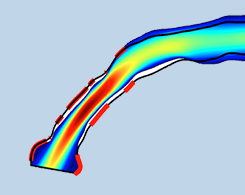
Improving Vascular Access for the Treatment of ESRD Patients
By combining CFD simulations with shape optimization techniques, biomedical engineers can better understand and predict vascular access for renal disease treatments.
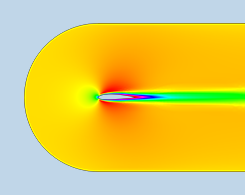
Optimize NACA Airfoil Designs with a Simulation App
You can design a simulation app to accurately compute lift and drag forces and optimize any airfoil following the NACA naming convention. Learn more and see an example demo app.
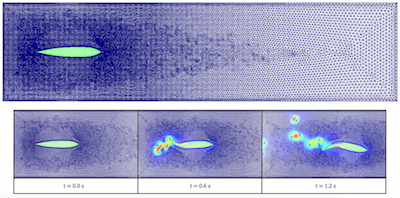
Studying the Swimming Patterns of Fish with Simulation
Researchers from the Università Roma Tre used simulation to study the carangiform swimming pattern of certain fish, the dynamics of which can be used to design aquatic vehicles and robots.
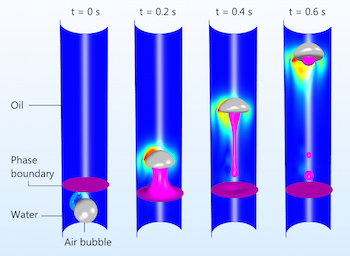
Simulate Three-Phase Flow with a New Phase Field Interface
The Three-Phase Flow, Phase Field interface, used for modeling separated three-phase flow, computes the shape of the interfaces between the 3 phases and accounts for interactions with walls.
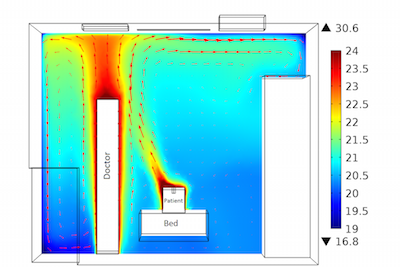
Preventing Airborne Infection with CFD Modeling
Healthcare-associated infections affect millions of people around the globe. Airborne bacteria is one cause of patient infections that can be prevented with efficient ventilation system designs.
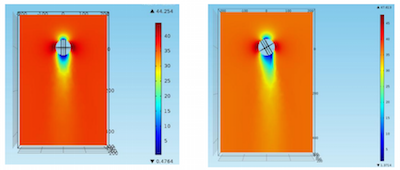
Simulating the Art of Swing Bowling in Cricket
The swing bowling move in cricket is as much an art form as it is an athletic feat. Researchers at the COMSOL Conference 2015 Boston simulated the fluid mechanics of conventional swing bowling.
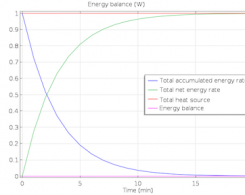
Methods for Evaluating Mass and Energy Conservation
Ever wonder how to compute the mass conservation of a fluid flow simulation, or the energy balance of a conjugate heat transfer simulation? If so, keep reading >>

Nestlé Sweetens the Candy Production Process with Simulation
Question: How does a well-known candy company ensure that each of their signature chocolate bars has the same consistency, texture, and taste? Answer: Fluid flow simulation!
Simulating Viscous Heating in a Fluid Damper
Fluid dampers are able to dissipate mechanical energy into heat through a process called viscous heating. You can simulate this process to optimize your fluid damper designs.
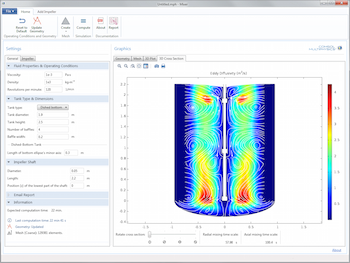
Intro to Optimizing Mixer Design by Creating an App
By building a simulation app to study mixer designs, you can easily test the influence that the vessel, impeller, and operational conditions have on the design’s mixing efficiency.
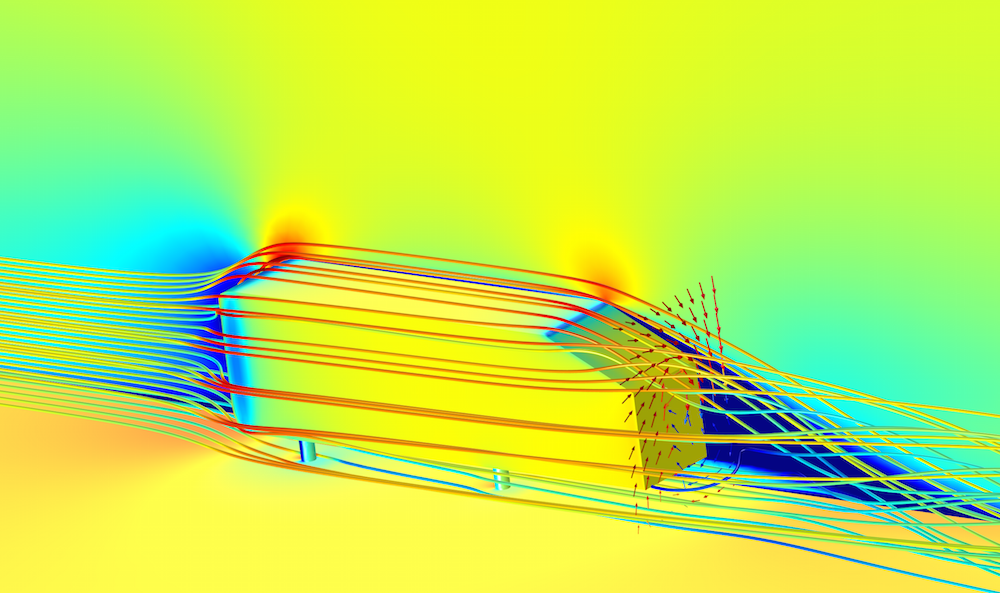
How Do I Compute Lift and Drag?
Analyzing lift and drag is an important task in many industries, such as automotive and aeronautics. Learn some different ways to compute lift and drag in COMSOL Multiphysics®.
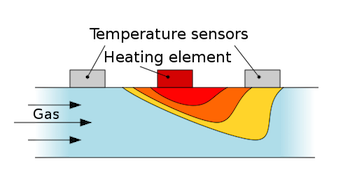
Describing the Behavior of a Thermal Mass Flow Sensor
Researchers from the University of Cambridge analyzed the dynamics of a thermal flow sensor, a component of a flowmeter, with a 3D model. Get the full story >>
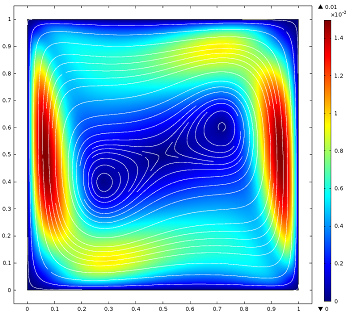
Using the Boussinesq Approximation for Natural Convection
Today, we compare the Boussinesq approximation to the full Navier-Stokes equations for a natural convection problem. We also show you how to implement the Boussinesq approximation in COMSOL Multiphysics software and discuss potential benefits of doing so.
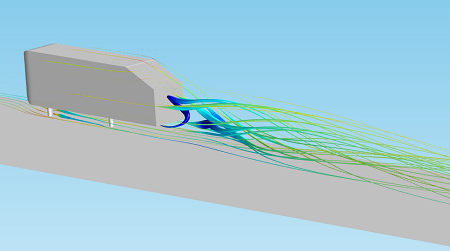
Studying the Airflow Over a Car Using an Ahmed Body
The Ahmed body is a benchmark model widely used in the automotive industry for validating simulation tools. We discuss simulating airflow over an Ahmed body to optimize automotive aerodynamics.
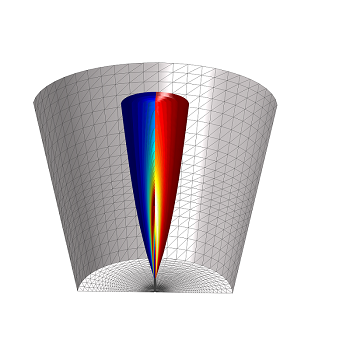
An Analysis of Syngas Combustion in a Round-Jet Burner
By combining the Reacting Flow interface and the Heat Transfer in Solids interface, we can study the syngas combustion in a round-jet burner. Get details…
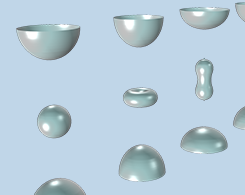
Tears of Wine and the Marangoni Effect
Have you ever noticed that when drinking a glass of wine, sometimes “tears” fall down in the inside of the wine glass? This is the Marangoni effect in action! Learn more and see examples…
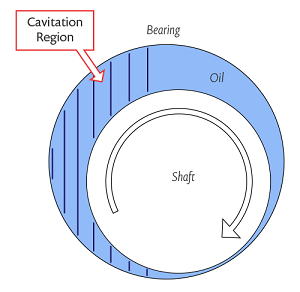
Predicting Cavitation in Journal Bearings
When designing journal bearings for use in a rotating shaft, the effect of cavitation needs to be considered, because it can affect the performance of these components.
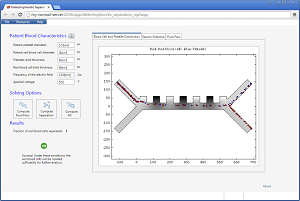
Dielectrophoretic Separation
Dielectrophoresis is a phenomenon in which an electric field is used to control the movement of electrically neutral particles. Learn about how to model this effect in both DC and AC fields.
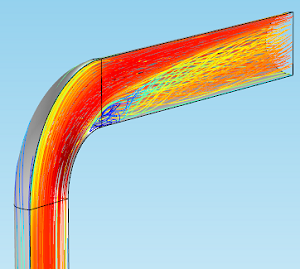
Visualizing Fluid Flow with Streamline Plots
As part of our blog series on postprocessing, we demonstrate the use of streamlines to visually describe fluid flow in your simulations. Learn how with an example of flow through a pipe elbow.
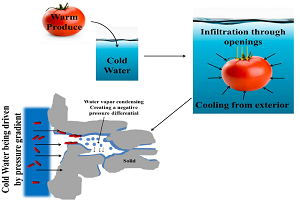
Hydrocooling Analysis for Fresh Produce Safety
During the hydrocooling process for tomatoes, bacteria can seep through and contaminate the food, making it unsafe to ingest. Researchers from Cornell University used simulation to investigate.
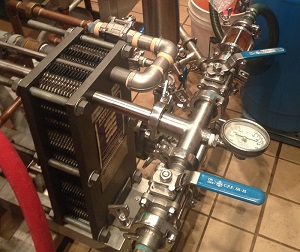
Improving the Beer Brewing Process with Simulation
Which side of home beer brewing are you more interested in: The culinary side, like the recipes and ingredients, or the engineering one, like the conjugate heat transfer and chemical reactions?
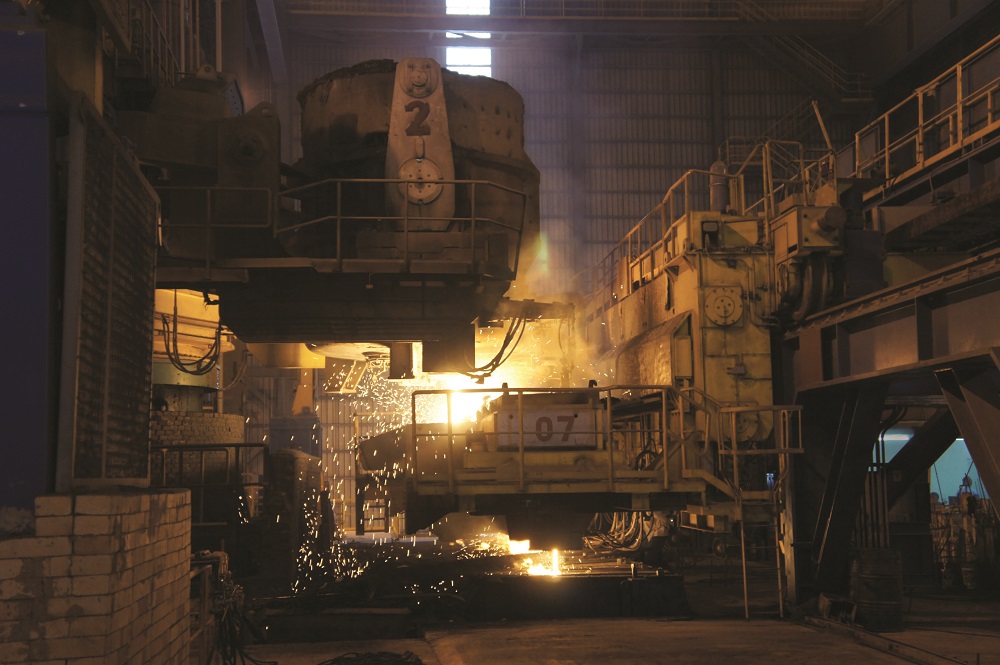
Optimizing the Continuous Casting Process with Simulation
To optimize the steelmaking process of continuous casting, researchers at SMS Concast turned to simulation. One result? A steelmaking plant in Taiwan reduced yearly CO2 emissions by ~40,000 tons.
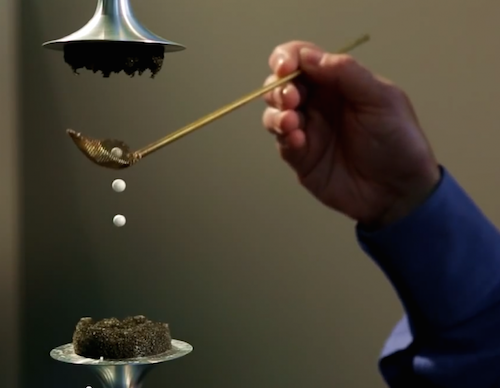
Acoustic Levitation Puts a Pure Spin on Medicine Fabrication
Engineers from Argonne National Laboratory used multiphysics simulation and trial-and-error prototyping to optimize the effectiveness of an acoustic levitator for medical fabrication.
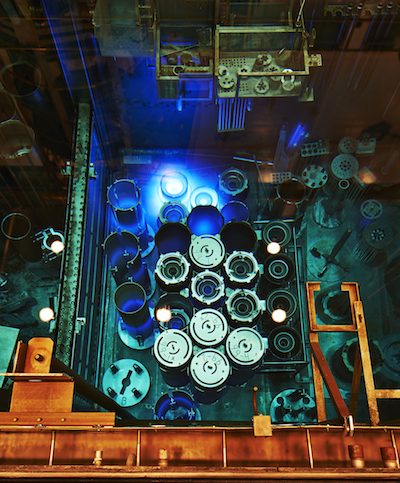
Converting the High Flux Isotope Reactor to LEU Fuel
Learn about an initiative that requires nuclear research reactors currently using highly enriched uranium fuel to be converted to low enriched uranium fuel — and how simulation can help.
